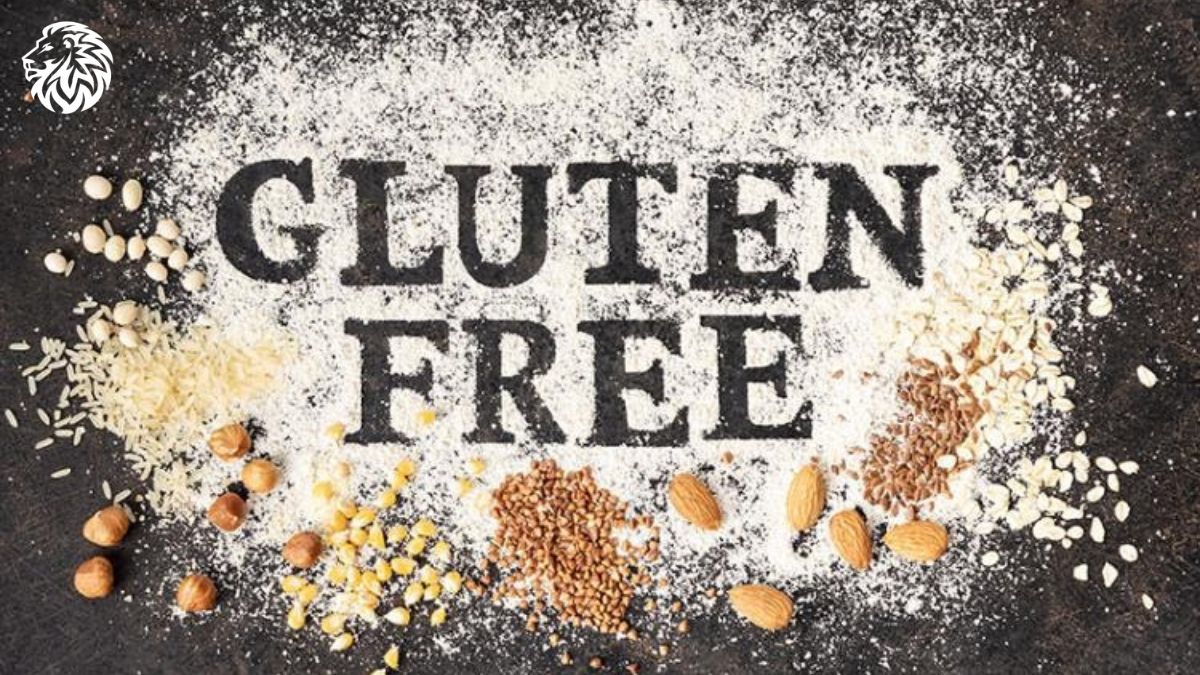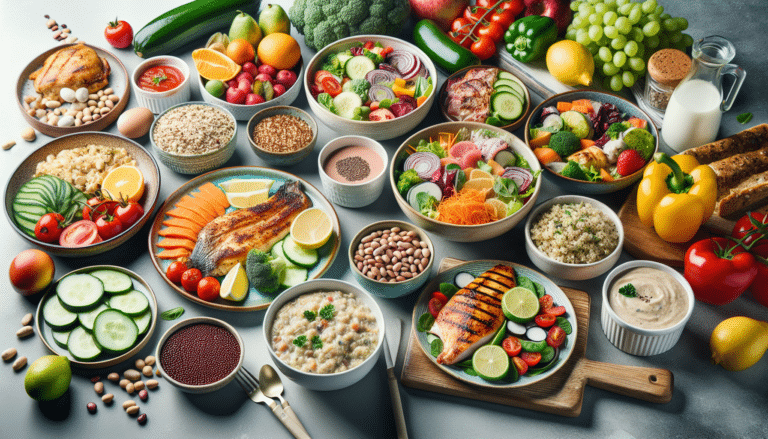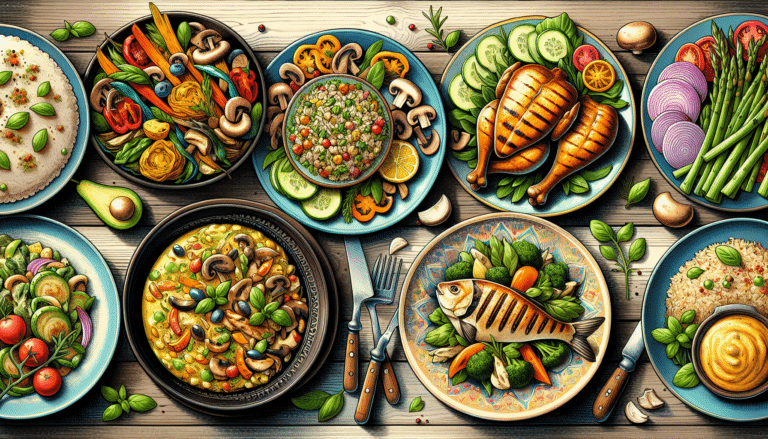In recent years, the gluten-free diet has transformed from a niche dietary requirement into a widespread lifestyle choice, capturing the attention of health enthusiasts, celebrities, and those with dietary restrictions alike. This trend has not only revolutionized grocery store aisles, with an ever-expanding array of gluten-free products, but has also sparked a global conversation about the role of diet in health and well-being.
At its core, gluten is a group of proteins found primarily in wheat, barley, and rye. It acts as a binding agent, giving bread its fluffy texture and pasta its firmness. However, for many, this seemingly innocuous protein can pose significant health challenges. Gluten is the central culprit in celiac disease, a serious autoimmune disorder, and is also implicated in non-celiac gluten sensitivity and wheat allergies. For individuals with these conditions, consuming gluten can lead to a range of symptoms from digestive distress to more severe health issues.
Common sources of gluten are found in everyday food items, making it a ubiquitous part of many diets. These include breads, pastas, cereals, baked goods, and even in less obvious products like sauces, soups, and processed foods. The proliferation of gluten in various food products has led to increased awareness and demand for gluten-free options, catering to those who must avoid gluten for health reasons and those who choose to eliminate it for other benefits.
As we delve deeper into the world of gluten-free diets, it’s important to distinguish between the necessity of such a diet for health reasons and the choice to adopt it as a lifestyle. In the following sections, we will explore who needs a gluten-free diet, the potential benefits and concerns associated with it, and how to navigate this lifestyle while maintaining a balanced and nutritious diet.
What is a Gluten-Free Diet?

A gluten-free diet is a dietary regimen that strictly excludes gluten, a mixture of proteins found in wheat and related grains, including barley and rye. This diet is essential for individuals with celiac disease, non-celiac gluten sensitivity, or wheat allergy, for whom gluten intake can lead to various health complications. However, in recent years, it has also gained popularity among those who do not have these conditions, with some people perceiving it as a healthier lifestyle choice.
Key Aspects of a Gluten-Free Diet:
- Eliminating Gluten-Containing Foods: The most critical aspect of a gluten-free diet is the complete avoidance of any food that contains gluten. This includes all traditional breads, pastas, cereals, baked goods, and many processed foods that use gluten as a thickening or binding agent.
- Reading Labels Carefully: For those on a gluten-free diet, it’s essential to become vigilant about reading food labels. Gluten can be present in unexpected products like soy sauce, salad dressings, malt vinegar, and even some types of candy.
- Avoiding Cross-Contamination: Cross-contamination can occur when gluten-free foods come into contact with gluten-containing foods. This is a particular concern in kitchens and restaurants where both types of foods are prepared.
Foods That Are Naturally Gluten-Free:
- Fruits and Vegetables: All fresh fruits and vegetables are naturally gluten-free and are a crucial part of a balanced diet.
- Meat and Fish: Plain, unprocessed meat, poultry, and fish do not contain gluten. However, breaded or marinated meats may have gluten, so it’s essential to check the ingredients.
- Dairy Products: Most natural dairy products, including milk, butter, and cheese, are gluten-free. However, some processed dairy products like ice cream or flavored yogurts may contain gluten as an additive.
- Grains and Starches: Certain grains and starches are naturally gluten-free, such as rice, quinoa, potatoes, corn, and beans. Gluten-free flours like almond, coconut, and rice flour are also widely available.
- Nuts and Seeds: Plain nuts and seeds are gluten-free, though it’s important to check for cross-contamination or added ingredients in packaged products.
Common Gluten-Containing Foods to Avoid:
- Wheat-Based Products: This includes bread, pasta, cereals, pastries, cakes, cookies, and crackers made with wheat flour.
- Barley and Rye: Foods containing barley (like malt vinegar and beer) or rye should be avoided.
- Processed Foods: Many processed foods contain hidden gluten, including certain soups, sauces, salad dressings, and processed meats.
- Certain Alcoholic Beverages: Beers, ales, and lagers that are not labeled gluten-free should be avoided as they typically contain barley malt.
A gluten-free diet requires careful consideration of food choices and preparation methods. While it can be challenging to navigate at first, a wide range of gluten-free alternatives are now readily available, making this diet more accessible than ever. For those who need or choose to follow this diet, it is essential to ensure a well-balanced intake of nutrients, possibly with the guidance of a dietitian or nutritionist.
Who Needs a Gluten-Free Diet?
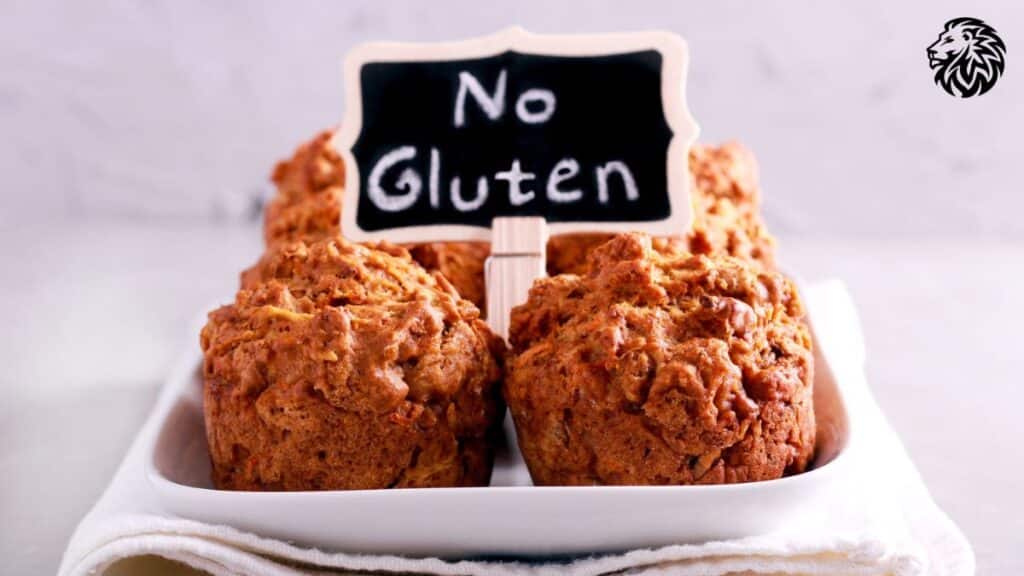
A gluten-free diet is not just a dietary trend; it’s a necessary medical intervention for several conditions. It’s crucial for individuals with certain health issues to avoid gluten to prevent serious health complications and improve their quality of life. Here’s a closer look at the conditions that necessitate a gluten-free diet:
1. Celiac Disease:
- Definition: Celiac disease is an autoimmune disorder where the ingestion of gluten leads to damage in the small intestine. It affects about 1% of the population globally.
- Role of Gluten: In celiac disease, gluten triggers an immune response that attacks the lining of the small intestine. This can lead to malabsorption of nutrients and various gastrointestinal and systemic symptoms.
- Symptoms: Common symptoms include diarrhea, bloating, gas, fatigue, low blood count (anemia), and osteoporosis. Some individuals may have dermatitis herpetiformis, a skin rash associated with celiac.
2. Non-Celiac Gluten Sensitivity (NCGS):
- Definition: NCGS is a condition in which individuals experience symptoms similar to those of celiac disease, yet lack the same antibodies and intestinal damage seen in celiac.
- Role of Gluten: The precise mechanism is not well understood, but gluten ingestion is linked to symptom development in NCGS.
- Symptoms: Symptoms include gastrointestinal problems such as bloating and diarrhea, as well as extra-intestinal symptoms like headaches, fatigue, and joint pain.
3. Wheat Allergy:
- Definition: Wheat allergy is an allergic reaction to proteins found in wheat, including but not limited to gluten.
- Role of Gluten: In wheat allergy, the immune system reacts to wheat proteins, including gluten, causing allergic symptoms.
- Symptoms: Symptoms can range from mild (rash, hives, itching, swelling, etc.) to severe (trouble breathing, wheezing, anaphylaxis). These symptoms usually occur within minutes to hours after eating wheat.
Symptoms of Gluten Intolerance:
- Gastrointestinal Symptoms: Such as bloating, diarrhea, constipation, abdominal pain.
- Systemic Symptoms: Including headaches, fatigue, joint and muscle pain, numbness in the legs, arms or fingers, and anemia.
- Dermatological Symptoms: Skin rashes, particularly in celiac disease, manifest as dermatitis herpetiformis.
- Neurological Symptoms: Some individuals report “brain fog,” depression, or anxiety after consuming gluten.
It’s important to note that self-diagnosis and treatment can be risky. If someone suspects they have a gluten-related disorder, they should consult a healthcare provider for proper testing and diagnosis. Starting a gluten-free diet without professional guidance can make it more challenging to diagnose these conditions, as the removal of gluten can alleviate symptoms, thereby masking the underlying issue.
A gluten-free diet is a life-changing commitment for those with celiac disease, NCGS, or wheat allergy. It requires strict adherence and careful food choices to manage symptoms and prevent long-term health complications. For others without these conditions, the benefits of a gluten-free diet are less clear and should be considered with caution and, ideally, professional guidance.
Health Benefits and Concerns of a Gluten-Free Diet
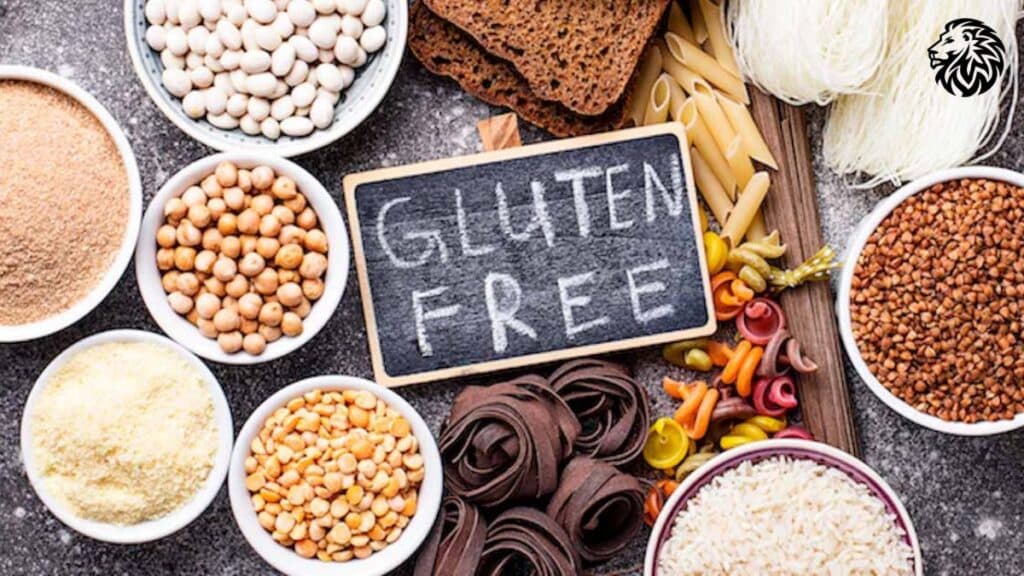
Adopting a gluten-free diet can bring significant health benefits for individuals with gluten-related disorders. However, there are also important nutritional considerations and misconceptions to be aware of.
Health Benefits for Gluten-Related Disorders:
- Relief from Symptoms: For those with celiac disease, non-celiac gluten sensitivity, or wheat allergy, eliminating gluten can lead to a dramatic reduction in symptoms such as gastrointestinal distress, skin rashes, and fatigue.
- Intestinal Healing: In celiac disease, a gluten-free diet promotes the healing of intestinal damage, improving nutrient absorption and overall gut health.
- Reduced Risk of Complications: Consistently following a gluten-free diet in celiac disease can lower the risk of long-term complications like osteoporosis, infertility, nerve damage, and certain cancers.
- Improved Quality of Life: Relief from symptoms and the prevention of complications contribute to a significantly improved quality of life.
Nutritional Concerns and Misconceptions:
- Risk of Nutrient Deficiencies: Gluten-free products often have lower amounts of fiber, iron, folate, niacin, thiamine, calcium, vitamin B12, phosphorus, and zinc. People on a gluten-free diet need to find alternative sources of these nutrients.
- Higher Sugar and Fat Content: Some gluten-free processed foods compensate for texture and flavor loss by adding more sugar and fat, which can lead to unintended weight gain and other health issues.
- Misconception: Gluten-Free Equals Healthier: Not all gluten-free foods are inherently healthier. It’s a misconception that simply choosing gluten-free products can lead to a healthier diet.
- Lack of Whole Grains: Avoiding gluten can result in a lower intake of beneficial whole grains, which are important for heart health and overall wellness.
The Importance of a Balanced Diet When Avoiding Gluten:
- Diverse Food Choices: It’s crucial to include a variety of gluten-free whole foods in the diet, such as fruits, vegetables, lean proteins, and gluten-free grains like quinoa, rice, and buckwheat.
- Seeking Nutrient-Rich Alternatives: For nutrients commonly found in gluten-containing foods, seek out alternative sources. For example, iron can be found in leafy greens and legumes, and whole-grain alternatives can provide fiber.
- Consultation with Health Professionals: Working with a dietitian or nutritionist can help ensure nutritional needs are met. They can provide guidance on meal planning and choosing nutrient-dense gluten-free foods.
- Reading Labels Carefully: Being vigilant about food labels is important not only to avoid gluten but also to understand the nutritional content of gluten-free products.
While a gluten-free diet is medically necessary for some and can bring significant health benefits, it’s not without its challenges. It’s important to approach this diet with a focus on balanced, nutrient-rich food choices and possibly professional guidance to ensure overall health and well-being.
Lifestyle Considerations for a Gluten-Free Diet

Adopting a gluten-free lifestyle involves more than just changing what you eat. It’s a comprehensive shift that impacts many aspects of daily life. Understanding the challenges and preparing to manage them can make the transition smoother and more sustainable.
Challenges of Maintaining a Gluten-Free Diet:
- Dining Out: Finding restaurants that offer gluten-free options and understanding how to communicate your dietary needs to staff can be daunting. Cross-contamination is also a concern in kitchens that are not exclusively gluten-free.
- Food Labeling: Learning to read and understand food labels is essential. In some countries, labeling laws for gluten can be complex or not fully regulated, making it challenging to identify hidden sources of gluten.
- Cross-Contamination: At home, shared kitchen spaces can be a source of cross-contamination. For example, using the same toaster for gluten-free and regular bread can be problematic.
- Cost: Gluten-free products often come with a higher price tag compared to their gluten-containing counterparts.
- Travel and Social Events: Attending social events or traveling can pose challenges in finding suitable food options and can require advanced planning.
Tips for a Successful Transition to a Gluten-Free Lifestyle:
- Education: Educate yourself about gluten-containing foods, safe food alternatives, and how to read food labels accurately.
- Plan Ahead: When dining out or traveling, research restaurants and menus in advance. Don’t hesitate to call ahead to inquire about gluten-free options.
- Kitchen Organization: In your home kitchen, consider having separate areas for gluten-free and gluten-containing foods. Use separate cooking utensils and appliances (like toasters and cutting boards) to avoid cross-contamination.
- Cook at Home: Preparing your own meals can be safer and more cost-effective. It also allows for complete control over ingredients.
- Join Support Groups: Connect with others who are living gluten-free. They can provide practical advice, emotional support, and a sense of community.
Psychological and Social Impact of Dietary Restrictions:
- Social Isolation: Dietary restrictions can sometimes lead to feeling left out in social situations, particularly during meals or events centered around food.
- Stress and Anxiety: Constant vigilance about avoiding gluten and fear of accidental ingestion can lead to increased stress and anxiety.
- Empowerment Through Education: Being well-informed about one’s dietary needs can lead to greater confidence in managing them, reducing anxiety and stress.
- Open Communication: It’s important to communicate your dietary needs to friends, family, and dining establishments openly and clearly, which can help mitigate social discomfort.
Although there are definite challenges to living a gluten-free life, careful planning, education, and a proactive approach can greatly ease the transition. It’s important to acknowledge and address not only the physical but also the psychological and social aspects of this dietary change to ensure a well-rounded and satisfying lifestyle.
Myths vs. Facts About the Gluten-Free Diet
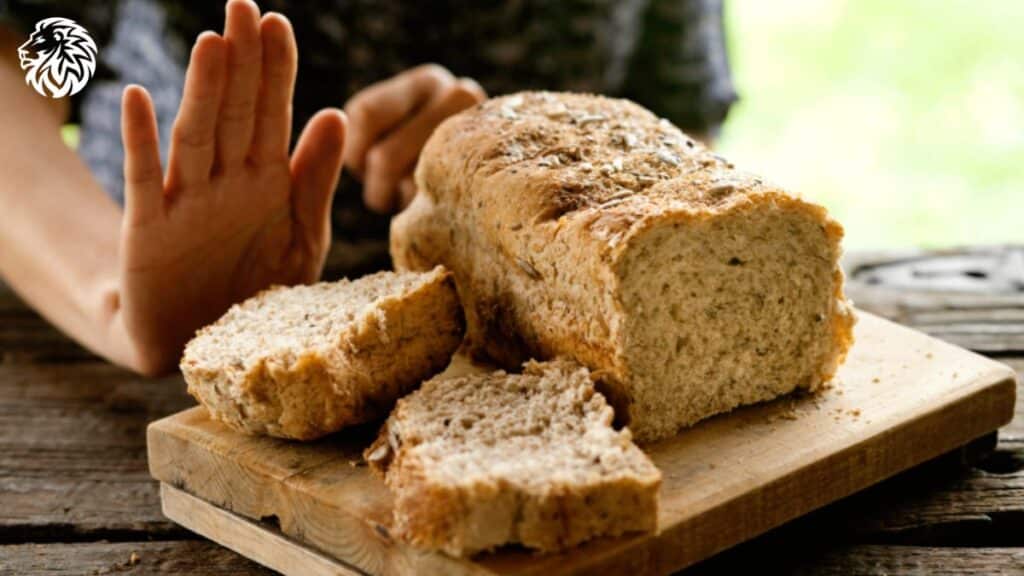
The gluten-free diet has garnered significant attention, leading to the proliferation of various myths and misconceptions. It’s important to separate fact from fiction, especially when these myths influence dietary choices. Here are some widespread myths debunked with facts backed up by research and professional opinions.
Myth 1: Gluten-Free Diet is Healthier for Everyone
- Fact: A gluten-free diet is essential for individuals with celiac disease, non-celiac gluten sensitivity, or a wheat allergy. However, for the general population without these conditions, there’s no scientific evidence to suggest that a gluten-free diet is inherently healthier. In fact, unnecessarily avoiding gluten can lead to deficiencies in essential nutrients like fiber, iron, and B vitamins, which are abundant in whole-grain wheat products.
Myth 2: Gluten-Free Diet Guarantees Weight Loss
- Fact: There’s a common misconception that going gluten-free is a surefire way to lose weight. This is not necessarily true. Weight loss on a gluten-free diet can occur, especially if it leads to a reduction in overall calorie intake and an increased consumption of fruits, vegetables, and lean proteins. However, many gluten-free products can be higher in calories, fat, and sugar compared to their gluten-containing counterparts, potentially leading to weight gain.
Myth 3: Gluten is Toxic
- Fact: For the majority of people, gluten is not toxic. It is only harmful to individuals with celiac disease, non-celiac gluten sensitivity, or a wheat allergy. For these individuals, gluten triggers adverse reactions in the body. However, for those without any gluten-related disorders, gluten is a harmless protein.
Myth 4: If It’s Gluten-Free, It’s Healthy
- Fact: Simply being labeled “gluten-free” does not automatically make a product healthy. Gluten-free products can still be high in sugar, unhealthy fats, and calories. It’s essential to read nutrition labels and not assume that a gluten-free label equates to nutritional value.
Myth 5: Gluten-Free Eating is Easier Now Thanks to More Products
- Fact: While it’s true that there are more gluten-free products available now than ever before, this does not inherently make following a gluten-free diet easy. Many of these products are processed and lack essential nutrients. Additionally, the risk of cross-contamination and mislabeling still exists, making vigilance necessary.
Myth 6: A Little Gluten is Okay for Those with Gluten Sensitivity
- Fact: For individuals with celiac disease, even a tiny amount of gluten can trigger a harmful reaction. Therefore, strict adherence to a gluten-free diet is necessary. For those with non-celiac gluten sensitivity, the tolerance level may vary, but it is generally advised to avoid gluten to prevent symptoms.
In summary, while a gluten-free diet is critical for certain health conditions, its benefits for the wider population are less clear. It’s important for individuals to make dietary choices based on accurate information and, if necessary, in consultation with healthcare professionals. Understanding the myths and realities can help in making informed decisions about whether a gluten-free diet is appropriate for one’s personal health needs.
Consulting Healthcare Professionals
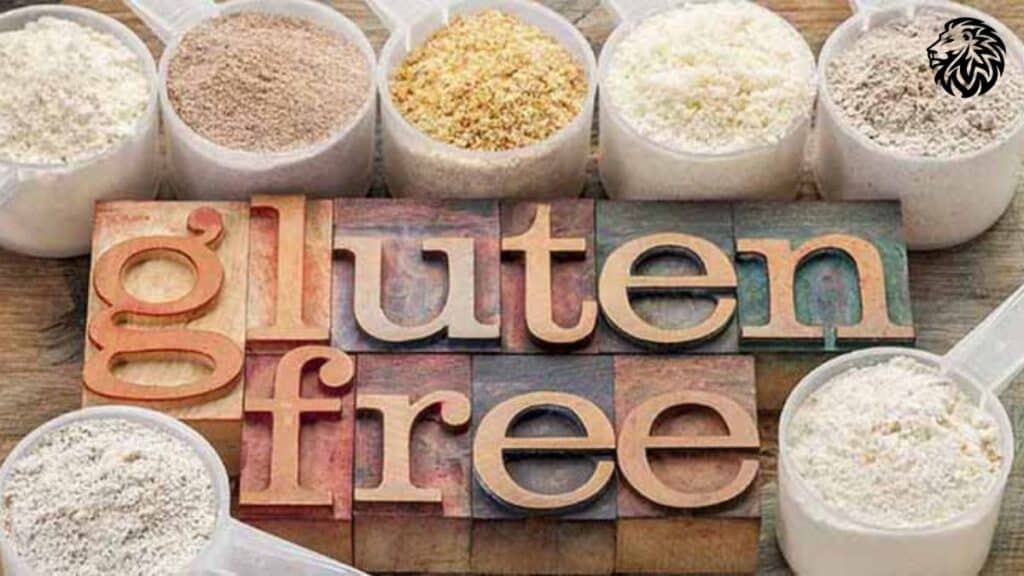
Before embarking on a gluten-free diet, especially for health reasons, it is crucial to consult with healthcare professionals. This step is important not only for an accurate diagnosis but also for ensuring that the diet is necessary and implemented correctly.
Importance of Professional Consultation:
- Accurate Diagnosis: Self-diagnosing gluten sensitivity or celiac disease can lead to unnecessary dietary restrictions or, conversely, not addressing a serious health issue. Healthcare providers can order appropriate tests to confirm or rule out these conditions.
- Guidance on Dietary Changes: A dietitian or nutritionist can provide valuable advice on how to effectively and safely transition to a gluten-free diet, ensuring that nutritional needs are met.
- Monitoring Health: Regular follow-up with a healthcare provider is important to monitor the effects of the diet on the individual’s health, particularly for those with diagnosed gluten-related disorders.
Tests and Diagnoses Related to Gluten Intolerance:
- Blood Tests: For celiac disease, the first step is usually a blood test looking for antibodies typically high in people with celiac. These tests include tTG-IgA and EMA-IgA.
- Endoscopy and Biopsy: If blood tests suggest celiac disease, an endoscopy may be performed, where a small camera is used to view the small intestine and take samples (biopsy) to check for damage to the villi, the tiny structures that aid in nutrient absorption.
- Genetic Testing: Genetic tests can be used to rule out celiac disease. People with celiac disease usually have the HLA-DQ2 or HLA-DQ8 genes. However, having these genes does not necessarily mean one will develop celiac disease.
- Exclusion Diets and Food Challenge Tests: For non-celiac gluten sensitivity, there are no specific tests. Diagnosis is often made by first ruling out celiac disease and wheat allergy. Then, an exclusion diet (eliminating gluten) followed by a food challenge (reintroducing gluten) may be used to assess if symptoms improve with exclusion and worsen with reintroduction.
- Skin and Allergy Testing: For wheat allergy, skin prick tests or specific IgE blood tests might be conducted to identify an allergic reaction to wheat proteins.
It’s important to note that for accurate testing, especially for celiac disease, one must be consuming gluten in their diet prior to testing. Starting a gluten-free diet before testing can interfere with the results, making it difficult to reach a definitive diagnosis.
Consulting healthcare professionals is an essential step in the process of diagnosing and managing gluten-related disorders. Professional guidance ensures not only correct diagnosis but also that any dietary changes are made safely and effectively, prioritizing overall health and nutritional balance.
Conclusion
In this exploration of the gluten-free diet, we’ve delved into various aspects that are crucial for understanding and effectively managing a lifestyle free of gluten. Here’s a summary of the key points:
- Understanding Gluten-Free Diet: A gluten-free diet involves eliminating all forms of gluten, a protein found in wheat, barley, and rye. It’s crucial for those with celiac disease, non-celiac gluten sensitivity, and wheat allergy.
- Medical Conditions and Gluten: Conditions like celiac disease, non-celiac gluten sensitivity, and wheat allergy require a strict gluten-free diet for health and well-being. For others, the benefits of such a diet are less clear and potentially unnecessary.
- Health Benefits and Concerns: While a gluten-free diet is beneficial for managing specific health conditions, it’s not inherently healthier for everyone. Nutritional deficiencies and reliance on processed gluten-free foods can be concerns.
- Lifestyle and Psychological Impacts: Adopting a gluten-free diet involves significant lifestyle changes, including challenges in dining out, food preparation, and social interactions. It’s important to be mindful of the psychological and social impacts of this diet change.
- Navigating Myths and Misconceptions: Dispelling myths about gluten-free diets, like the assumption that they are universally healthier or lead to weight loss, is essential for making informed decisions.
- Consultation with Healthcare Professionals: Before starting a gluten-free diet, especially for health reasons, consulting with healthcare professionals is critical. They can provide accurate diagnoses, guidance on dietary changes, and ongoing health monitoring.
The journey of understanding and potentially adopting a gluten-free diet is personal and varies based on individual health needs and conditions. It’s important for readers to make informed decisions based on accurate information, personal health circumstances, and professional medical advice. Whether for medical necessity or personal choice, a gluten-free lifestyle should be approached thoughtfully, prioritizing overall health and well-being.
Frequently Asked Questions about Gluten-Free Diet
- FAQ: Can a gluten-free diet improve energy levels and reduce fatigue?
- Answer: For individuals with gluten-related disorders like celiac disease or non-celiac gluten sensitivity, a gluten-free diet can lead to a reduction in symptoms like fatigue and an overall increase in energy levels. However, for those without these conditions, there is no substantial evidence to suggest that a gluten-free diet will inherently improve energy levels.
- FAQ: Is it safe for children to follow a gluten-free diet?
- Answer: A gluten-free diet is safe and necessary for children diagnosed with celiac disease or a wheat allergy. However, for children without these conditions, unnecessarily following a gluten-free diet can risk nutritional deficiencies. It’s crucial to consult with a pediatrician or a pediatric dietitian before making significant dietary changes for children.
- FAQ: How can I ensure I’m getting enough fiber on a gluten-free diet?
- Answer: To maintain adequate fiber intake on a gluten-free diet, focus on incorporating a variety of gluten-free whole grains like quinoa, brown rice, and buckwheat, as well as plenty of fruits, vegetables, legumes, and nuts. These foods are naturally rich in fiber and can help compensate for the fiber typically obtained from wheat-based products.
- FAQ: Are oats safe to eat on a gluten-free diet?
- Answer: Pure oats are naturally gluten-free and can be safe for most people with gluten intolerance. However, oats are often contaminated with gluten during processing. It’s important to look for oats specifically labeled as gluten-free to ensure they haven’t been contaminated.
- FAQ: Can going gluten-free help with skin conditions like eczema or psoriasis?
- Answer: There is limited scientific evidence linking a gluten-free diet with improvement in skin conditions like eczema or psoriasis, except in the case of dermatitis herpetiformis, a skin manifestation of celiac disease. For individuals with known gluten sensitivity, avoiding gluten may help manage these skin conditions, but it’s important to consult with a healthcare provider for a proper diagnosis and treatment plan.
